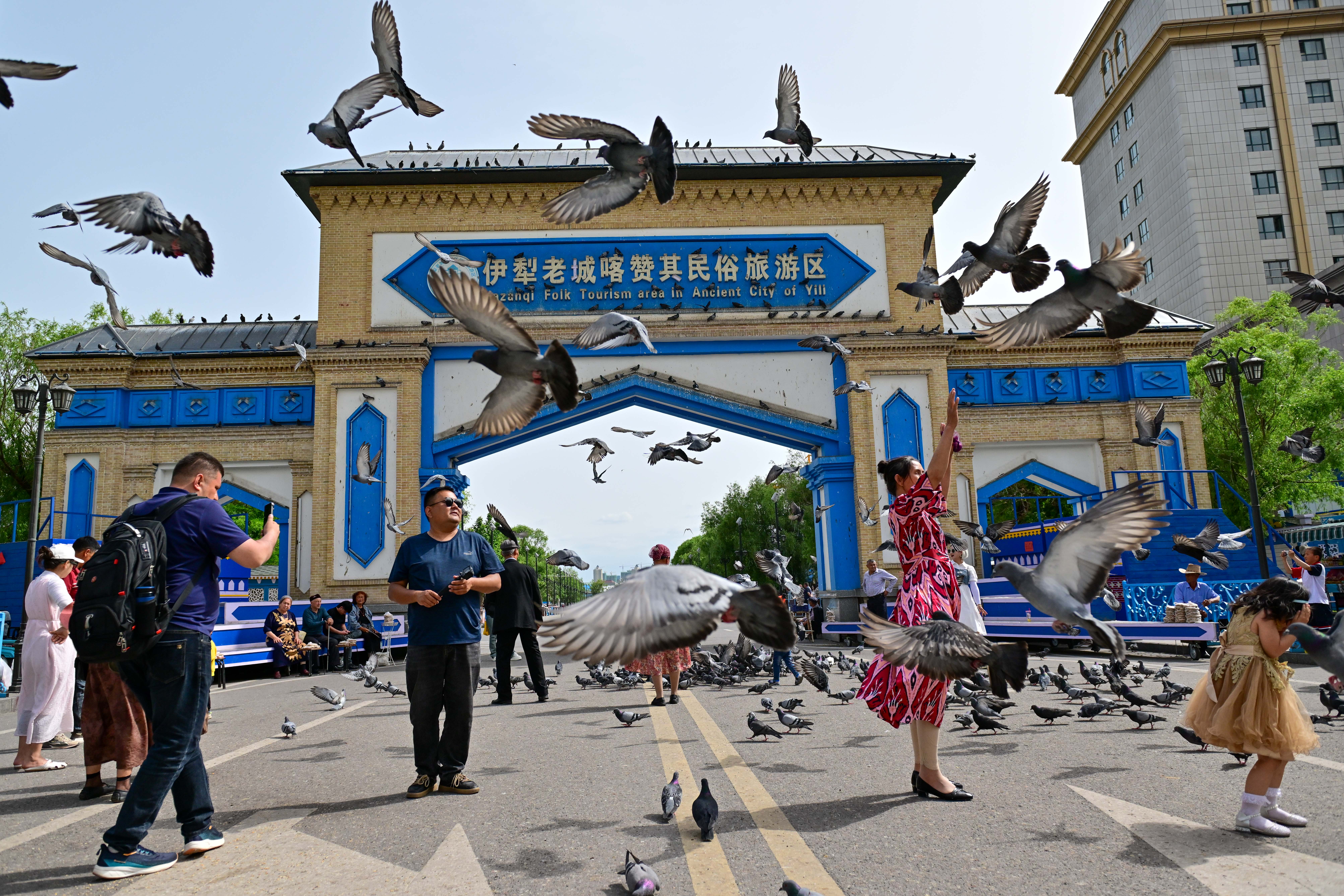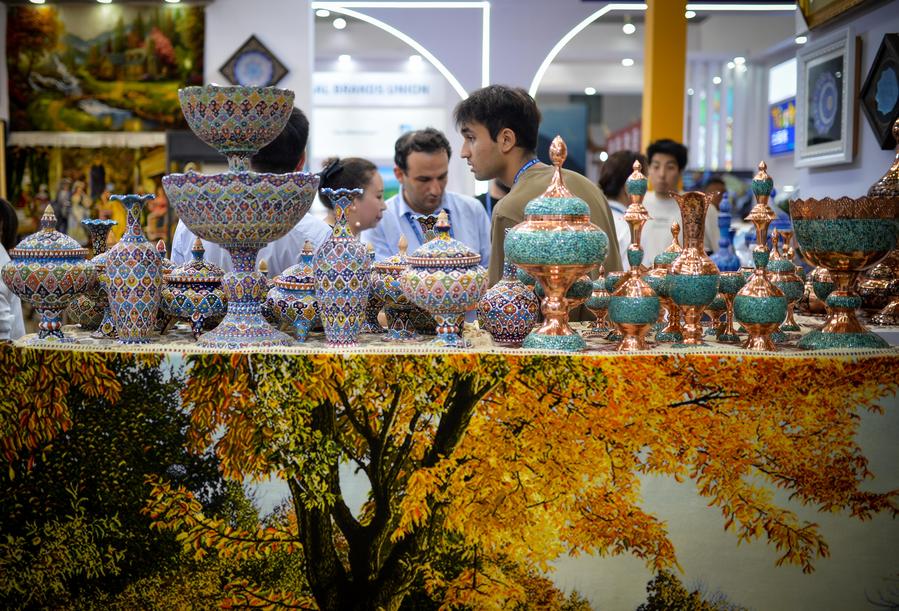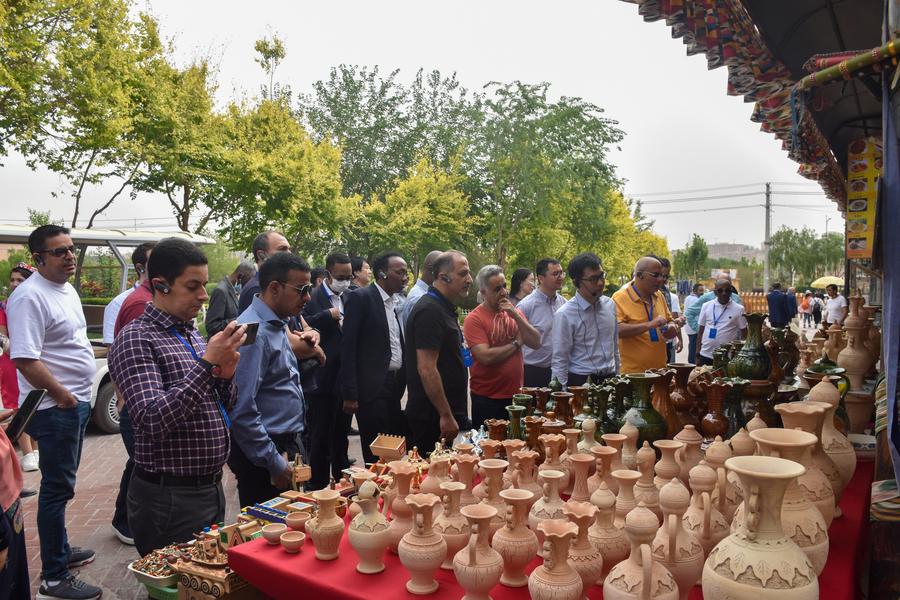Interview: Lebanese expert praises ethnic unity, economic development in Xinjiang

Visitors tour Kazanqi folk tourism area in Yining City, Ili Kazak Autonomous Prefecture, northwest China's Xinjiang Uygur Autonomous Region, May 11, 2024. (Xinhua/Ding Lei)
The government's policy on Xinjiang has transformed it into one of the most important Chinese regions by strengthening cultural construction, harmonizing ethnic ties, stimulating investment, improving agriculture, creating job opportunities, and increasing people's living conditions.
BEIRUT, July 23 (Xinhua) -- As one of China's most beautiful and charming regions, Xinjiang Uygur Autonomous Region is characterized by its culture of cooperation, societal fusion, and ethnic diversity, a Lebanese expert told Xinhua in a recent interview here.
Samir Diab, general coordinator of the Arab Leftist Forum, visited Xinjiang in March as part of a delegation of Arab politicians. Recalling the visit, he praised the ethnic unity, economic development, and beautiful scenery in Xinjiang.
Diab said that the Uygurs, like other ethnic groups in China, enjoy the freedom of belief and practicing their religious activities.
"China's Constitution stipulates the freedom and protection of citizens' religious belief and non-discrimination, and the state protects normal religious activities," he said.

People purchase goods at the 8th China-Eurasia Expo in Urumqi, northwest China's Xinjiang Uygur Autonomous Region, June 26, 2024. (Xinhua/Li Renzi)
Xinjiang, a vital corridor of the ancient Silk Road, now plays a crucial role in the Belt and Road cooperation as well, Diab said.
The government's policy on Xinjiang has transformed it into one of the most important Chinese regions by strengthening cultural construction, harmonizing ethnic ties, stimulating investment, improving agriculture, creating job opportunities, and increasing people's living conditions, Diab noted.
He slammed the United States for interfering in China's internal affairs by supporting extremists in Xinjiang and smearing China's policies, in an attempt to contain China's rise on the global stage.
The U.S. actions "aim at striking China from within, weakening it, and destroying its economy and development," he said.

A delegation of diplomats and officials from the Arab League and its Secretariat visit the old town of Kashgar in northwest China's Xinjiang Uygur Autonomous Region, May 31, 2023. (Xinhua/Gao Han)
Diab also applauded the growth of Arab-China cooperation over the years under the framework of the China-Arab States Cooperation Forum, which marked its 20th anniversary by holding its 10th ministerial conference in Beijing in May.
Since the forum's inauguration, and through its various mechanisms, the ties between China and Arab countries have witnessed significant development, he said.
China and Arab states have been supporting each other on key issues, as they share a consensus on respecting national sovereignty, rejecting outside interference in their internal affairs, and upholding international law, Diab said.
He added that China, as the leading trade partner of many Arab countries, is regarded by Arabs as a major economic partner with pioneering experience and an important model for achieving development and progress in various fields.
- Interview: China's Xinjiang deserves more global media appreciation, says Slovak news portal founder
- Xinhua Headlines: China builds world-class ski resorts in Altay, home to ancient ski heritage
- Guest Opinion: Xinjiang, a rising star along the Belt and Road
- Xinjiang's foreign trade hits record 403 bln yuan
- New air-cargo route links China's Xinjiang, London


